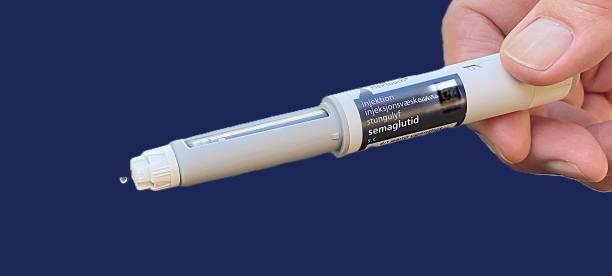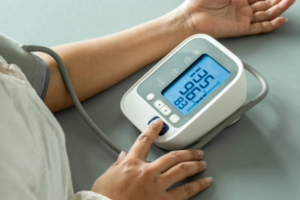Simple Daily Habits to Keep Stress in Check
Life can be overwhelming at times, and stress often feels inevitable. But managing stress doesn’t have to be complicated—you can start with a few simple daily habits that make a big difference over time. During Stress Awareness Month this April, Community Quick Care encourages you to embrace small, sustainable changes to improve your mental and physical well-being.
Start Your Day with Intention
How you begin your morning sets the tone for the rest of your day. Take a few minutes to practice mindfulness, whether that’s through deep breathing exercises, stretching, or simply sipping your coffee without distractions. These moments of calm can help you approach the day with a focused and grounded mindset.
Keep Moving Throughout the Day
Physical activity is one of the most effective ways to combat stress. You don’t need a gym membership or hours to spare—even a short walk or a few stretches can boost your mood and reduce tension. At Community Quick Care, our team emphasizes the importance of exercise in managing stress and promoting overall health. We’re here to help you incorporate movement into your routine in ways that work for you.
Stay Hydrated and Nourished
What you put into your body impacts how you feel. Prioritize hydration and aim for balanced, nutritious meals to keep your energy steady and your stress levels in check. If you have concerns about your diet or how it may affect your health, Community Quick Care can guide you with personalized advice during your visit.

Take Mental Breaks
It’s easy to feel bogged down by responsibilities, but taking short breaks can refresh your mind and help you stay productive. Whether it’s stepping outside for fresh air, listening to a favorite song, or engaging in a relaxing hobby, small mental resets can be incredibly effective.
Regular Check-Ups for Peace of Mind
Sometimes stress can manifest in physical symptoms or contribute to long-term health issues. Regular check-ups can serve as a proactive way to monitor your health and catch concerns early. At Community Quick Care, our dedicated providers offer comprehensive physicals and consultations to help you identify stress-related challenges and develop strategies to manage them.
Making these habits part of your daily routine can improve your resilience and help you cope better with life’s demands. Community Quick Care is here to support you during Stress Awareness Month and beyond. Visit us to learn more about managing stress and taking charge of your well-being.
National Self-Check Month: Empower Yourself with Proactive Health
February is National Self-Check Month, a timely reminder that we hold the power to take charge of our health. This month encourages us to embrace self-checks and early detection to avoid chronic diseases and other preventable conditions.
Often, we put off health checkups for various reasons: we’re too busy, afraid of the results, or simply forget. However, National Self-Check Month brings a wealth of resources to our fingertips, helping us navigate healthcare-related fears and concerns with confidence.
Self-checks are essential because they promote early detection and preventive care, significantly reducing the risk of severe health issues. By being proactive, we can identify potential problems early and seek appropriate care, ultimately improving our overall well-being. Regular self-checks and professional health screenings can be life-saving, leading to early intervention and better treatment outcomes.

Even if you’re diligent about your health, this month provides an excellent opportunity to support loved ones who may not be as proactive. Sit down with them, share your concerns, and offer guidance on maintaining better health practices. It’s a great way to show you care and to ensure they are prioritizing their health as well.
Beyond physical health, National Self-Check Month also highlights the importance of addressing stress. Chronic stress can have serious repercussions on our health, including weight gain, high blood pressure, and an increased risk of chronic diseases. Stress management is crucial for overall well-being, as it helps prevent these conditions and promotes a healthier lifestyle. Simple practices like mindfulness, exercise, and seeking support when needed can make a significant difference in managing stress and maintaining optimal health.
At Community Quick Care, we are dedicated to supporting your health journey. Our highly skilled Physician Assistants and Nurse Practitioners offer a range of medical services to help you stay on top of your health. From allergy testing and family medicine to physicals and lab testing, we provide comprehensive care to address your health needs. You can find more details about our services on our website.
By prioritizing self-checks and regular health screenings, you are taking a proactive step towards better health. National Self-Check Month is the perfect time to start taking charge of your health and encouraging those around you to do the same.
Kickstart Your New Year with Healthy Weight Loss
The New Year is here, and many of us are motivated to set goals for a healthier, happier life. Weight loss often features prominently on our list of resolutions, but it’s more than just a number on the scale—it’s about embracing a lifestyle that supports overall well-being. Achieving and maintaining a healthy weight can significantly impact your physical health, mental health, and quality of life.
The Benefits of Weight Loss
Losing excess weight can lead to numerous health benefits, including:
Improved Mental Health: Weight loss can enhance your mood and self-esteem, contributing to better mental health.
Improved Cardiovascular Health: Shedding extra pounds can lower your blood pressure, reduce cholesterol levels, and decrease the risk of heart disease and stroke.
Better Blood Sugar Control: Weight loss can enhance insulin sensitivity and reduce the risk of developing type 2 diabetes.
Enhanced Mobility and Reduced Joint Pain: Carrying less weight reduces stress on your joints, making it easier to move and stay active.
Boosted Energy Levels: A healthier weight often translates to increased energy and vitality, enabling you to engage in daily activities with greater ease.
Strategies for Successful Weight Loss
Achieving sustainable weight loss involves a combination of healthy eating, regular physical activity, and behavioral changes. Here are some effective strategies to get you started:
Support System: Engage with a support network, whether it’s friends, family, or a weight loss group, to stay motivated and accountable.
Balanced Diet: Focus on consuming a variety of nutrient-dense foods, including fruits, vegetables, lean proteins, whole grains, and healthy fats. Avoid processed foods and sugary beverages.
Regular Exercise: Incorporate both cardiovascular exercises (like walking, running, or cycling) and strength training (such as lifting weights or resistance bands) into your routine.
Hydration: Drink plenty of water throughout the day to stay hydrated and support your metabolism.
Mindful Eating: Pay attention to hunger and fullness cues, and practice portion control to avoid overeating.
How Community Quick Care Can Help

At Community Quick Care, we offer personalized weight loss plans that include medical support for optimal results. One of our innovative solutions is Semaglutide, a medication that has been shown to aid in weight loss by regulating appetite and promoting a feeling of fullness. Our dedicated healthcare professionals are here to guide you on your journey, providing comprehensive assessments, ongoing monitoring, and expert advice.
Start your New Year off right by taking the first step towards a healthier you. Contact us today to learn more about our weight loss programs and how Semaglutide can support y
Practicing Gratitude for Better Health
In our fast-paced lives, it’s easy to get caught up in the daily grind and overlook the small joys that make life meaningful. Practicing gratitude has been shown to have profound benefits on our physical, emotional, and mental well-being. By focusing on the positives, we can significantly improve our overall health and happiness.
The Benefits of Practicing Gratitude
Gratitude is more than just saying “thank you.” It’s a deep-seated appreciation for the good things in life, which can lead to a host of health benefits. Research has shown that people who regularly practice gratitude experience lower levels of stress and depression, stronger immune systems, and better sleep. Additionally, gratitude can lead to an improved mood, increased energy levels, and a greater sense of overall well-being.
When we make a conscious effort to focus on what we’re thankful for, it can shift our mindset from one of negativity to one of positivity. This shift can help us handle challenges more effectively, improve our relationships, and increase our resilience. By cultivating a habit of gratitude, we can transform our lives and enhance our health.
How to Practice Gratitude

Practicing gratitude doesn’t require grand gestures; it can be as simple as keeping a daily gratitude journal. Take a few minutes each day to write down three things you’re grateful for. This practice can help you reflect on the positive aspects of your life and develop a more optimistic outlook.
Another way to practice gratitude is by expressing appreciation to others. Whether it’s a heartfelt note, a kind word, or a simple “thank you,” showing gratitude can strengthen your connections with those around you and create a ripple effect of positivity.
Embracing Gratitude for Stress Relief
At Community Quick Care, we understand the importance of holistic health and well-being. Our compassionate team is dedicated to providing top-notch medical services to support your health journey. Incorporating gratitude into your daily life can lower stress and improve your overall mental health. Just as we provide services like Family Medicine and Weight Loss Programs to support your physical health, practicing gratitude is a powerful tool for mental and emotional well-being.
By integrating a practice of gratitude into your daily routine and leveraging the comprehensive services offered by Community Quick Care, you can take significant strides toward better health and a more fulfilling life.
Tackling Childhood Obesity: Causes, Effects, and Solutions
Childhood obesity is a growing concern worldwide, with significant implications for the health and well-being of children. This condition, characterized by excessive body fat, can lead to numerous health issues, both immediate and long-term. September was National Childhood Obesity Awareness Month, a time dedicated to raising awareness about this serious public health issue. However, it’s important to understand that addressing childhood obesity is crucial all year round. Community Quick Care, a clinic offering a range of services including physicals, well-child checks, sports physicals, lab testing, and glucose testing, plays a crucial role in addressing this issue.
Childhood obesity can have severe physical and psychological effects. Physically, it increases the risk of developing conditions such as type 2 diabetes, high blood pressure, high cholesterol, and asthma. Obese children are also more likely to suffer from joint problems, sleep apnea, and fatty liver disease. Psychologically, obesity can lead to low self-esteem, depression, and social isolation. These issues can affect a child’s academic performance and overall quality of life.

Why Childhood Obesity Happens
Several factors contribute to childhood obesity. One of the primary causes is an imbalance between calorie intake and expenditure. Children today consume more high-calorie, low-nutrient foods and engage in less physical activity than previous generations. Genetic factors also play a role; children with obese parents are more likely to become obese themselves. Additionally, environmental factors such as lack of access to healthy foods and safe places to play can contribute to obesity.
Treating Childhood Obesity
Addressing childhood obesity requires a comprehensive approach. Community Quick Care offers several services that can help manage and prevent obesity in children:
- Glucose Testing: Monitoring blood sugar levels helps in managing and preventing type 2 diabetes, a common complication of obesity.
- Physicals and Well-Child Checks: Regular check-ups allow healthcare providers to monitor a child’s growth and development, identify early signs of obesity, and provide guidance on maintaining a healthy lifestyle.
- Sports Physicals: Encouraging physical activity is crucial in combating obesity. Sports physicals ensure that children are fit to participate in physical activities, promoting an active lifestyle.
- Lab Testing: Identifying underlying causes of obesity, such as hormonal imbalances or metabolic disorders, is essential for effective treatment. Community Quick Care offers comprehensive lab testing to diagnose these issues.
Community Quick Care’s Role
Community Quick Care is dedicated to providing personalized care to each child. Their team of healthcare professionals works closely with families to develop tailored plans that address the unique needs of each child. This includes nutritional counseling, exercise recommendations, and behavioral therapy to promote healthy habits.
In addition to medical interventions, Community Quick Care emphasizes the importance of community involvement. They collaborate with local schools and organizations to create programs that encourage healthy eating and physical activity. By fostering a supportive environment, they aim to reduce the prevalence of childhood obesity and improve the overall health of the community.
Conclusion
Childhood obesity is a complex issue that requires a multifaceted approach. Community Quick Care is committed to addressing this challenge through comprehensive medical services, personalized care, and community engagement. By working together, we can help children lead healthier, happier lives.






